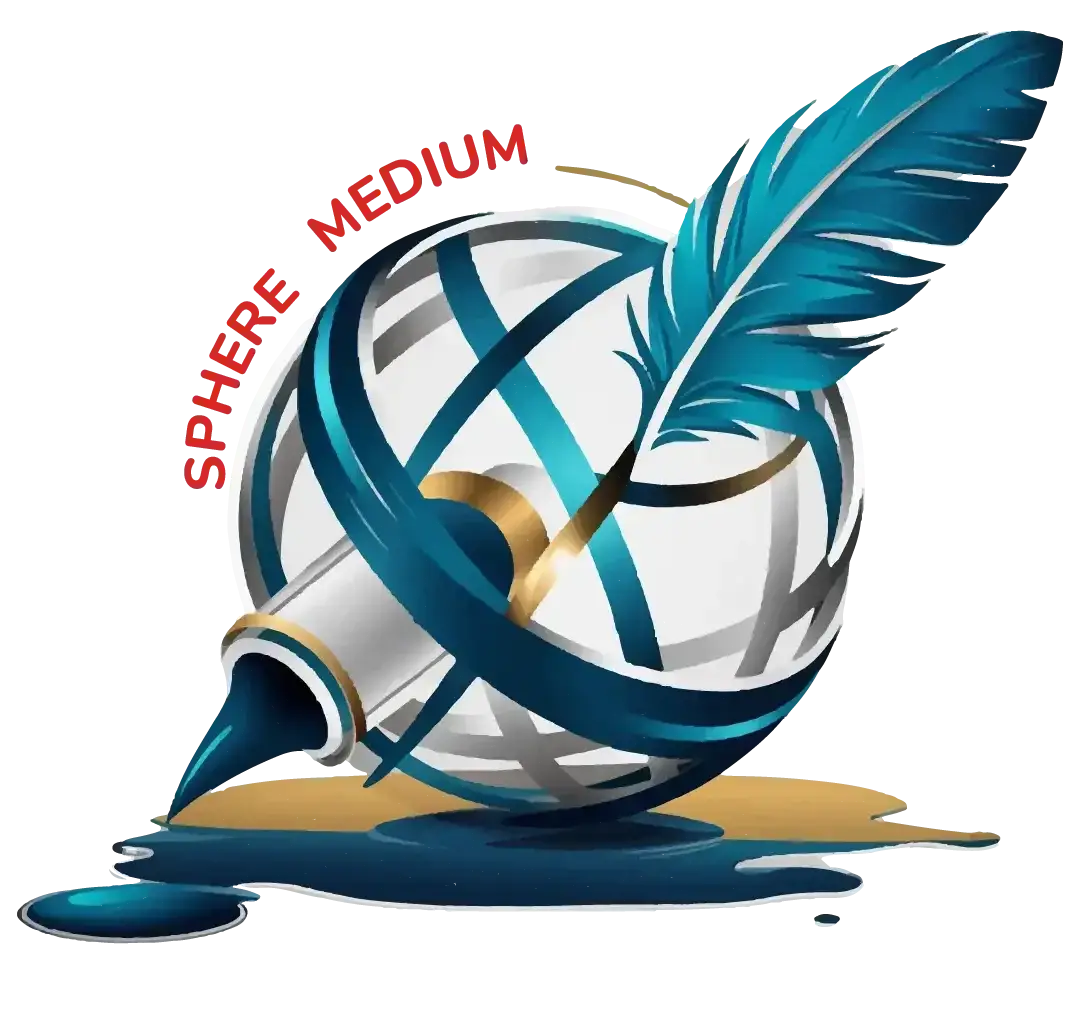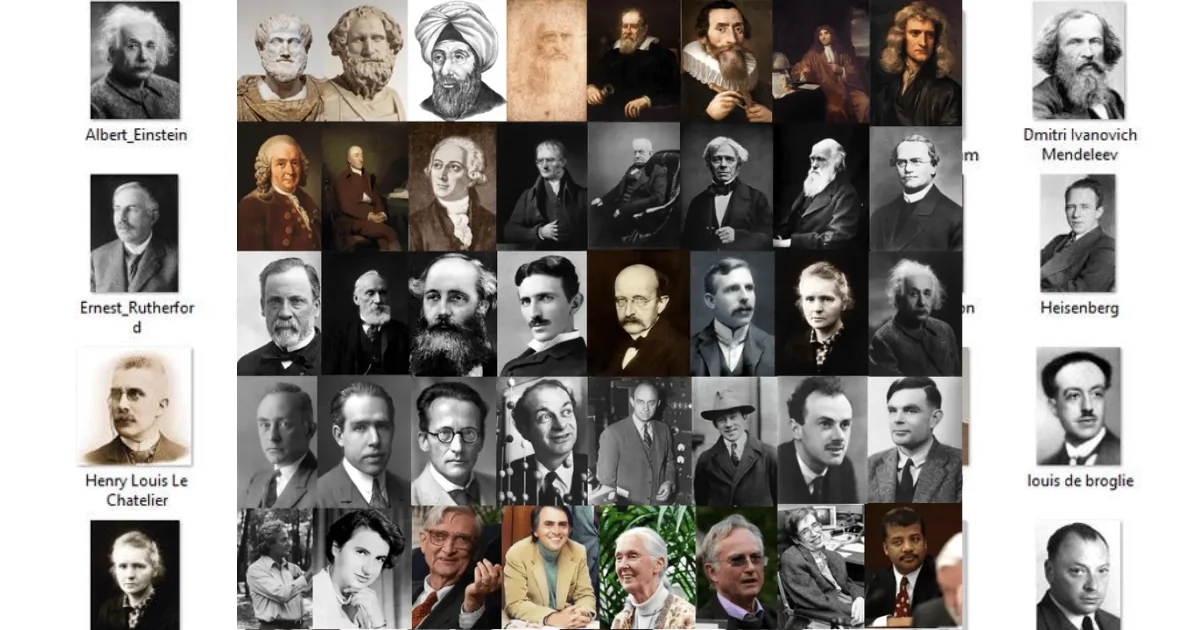More than anything else, science has changed the world. Great minds have questioned what we thought we knew and revolutionized how we see the world in fields like medicine, physics, chemistry, and computer science. This article talks about some of the most important scientists in history from different fields who have a lasting impact on human progress.
1. Isaac Newton (1643–1727) was a mathematician and physicist.
People generally deem Isaac Newton the father of modern science. His book Principia Mathematica established the groundwork for classical mechanics by explaining the principles of motion and universal gravitation. Around the same time as Leibniz, Newton also came up with calculus on his own. His work brought the sky and the earth together under the same laws, which was a radical thought at the time. A much of contemporary engineering and space exploration wouldn’t be possible without Newton.
2. Chemistry and Physics: Marie Curie (1867–1934)
Marie Curie was the first woman to win a Nobel Prize. She is still the only person to have won Nobel Prizes in both physics and chemistry. She found polonium and radium, started research into radioactivity, and improved medical therapies that use radiation. Even though she worked in tough conditions and didn’t get much credit at first, her legacy opened opportunities for several generations of women in science.
3. Albert Einstein (1879–1955) was a physicist.
We learned a lot about time, space, and gravity from Einstein’s theory of relativity. His equation E = mc² showed how mass and energy are related, which was the first step toward nuclear power and nuclear weapons. Einstein was more than just a physicist; he was also a symbol of intellectual freedom, humanistic values, and genuine curiosity. He changed the way science worked in the 20th century.
4. Charles Darwin (1809–1882) studied biology.
With Darwin’s book On the Origin of Species presented the idea of evolution through natural selection. It was new and exciting, but also very controversial. His work changed biology from a field that looked at life in a static way to one that looked at it in a dynamic, evidence-based way. Evolution is now the basis for everything from genetics to ecology. People still argue over Darwin’s ideas, but it’s clear that they have had a big impact on science and philosophy.
5. Rosalind Franklin (1920–1958) – Molecular Biology
Rosalind Franklin’s work with X-ray crystallography was very important in finding out what DNA looks like. Her iconic “Photo 51” gave Watson and Crick important proof that helped them figure out the double helix. Franklin wasn’t fully recognized when she was alive, but she was a great researcher whose work revolutionized biology and medicine forever.
6. Nikola Tesla (1856–1943) – Electrical Engineering
Tesla was an electrical engineer and inventor with a vision. He came up with the alternating current (AC) technology that now powers homes and cities. He also worked on sending energy, robotics, and wireless communication. People often forget about Tesla because they like Edison better. Tesla was decades ahead of his time, and many of his ideas have only lately proved useful.
7. Galileo Galilei (1564–1642) studied astronomy and physics.
Galileo pointed the telescope at the sky and found moons around Jupiter, Venus’s phases, and mountains on the Moon. He believed in the Copernican hypothesis, which said that the Earth circles the Sun. This was a risky idea at the time. Galileo was the first to do contemporary experimental science. He came up with a new way to do things: test, watch, and repeat.
8. Ada Lovelace (1815–1852)—Computer Science
Ada Lovelace is often thought of as the first computer programmer. She devised the first algorithm for a machine, the Analytical Engine, which Charles Babbage designed. She thought about a time when machines could handle more than simply numbers. Her idea came about a hundred years before contemporary computers. Today, she is known as a pioneer of the digital age.
9. James Clerk Maxwell (1831–1879) was a physicist.
Maxwell came up with a set of equations that now retain his name that brought together electricity and magnetism. His research proved that light is an electromagnetic wave, which is the basis for current physics and communications technologies. Einstein said, “Maxwell’s equations of the electromagnetic field are what gave rise to the special theory of relativity.”
10. Genetics by Gregor Mendel (1822–1884)
Mendel’s experiments with pea plants showed the basic rules of heredity, such as dominant and recessive features, segregation, and independent assortment. People didn’t pay much attention to his work while he was alive, but it laid the groundwork for genetics. Mendel is now known as the father of modern genetics, which is important for everything from farming to medicine.
11. Quantum Physics by Richard Feynman (1918–1988)
Feynman made physics clearer, more creative, and more exciting. He was a big part of the Manhattan Project and helped create quantum electrodynamics (QED), for which he won the Nobel Prize. Feynman was known for his interesting lectures and graphics. He also made science interesting and easy for everyone to understand.
12. Rachel Carson (1907–1964) was an environmental scientist.
Carson’s book Silent Spring showed how dangerous pesticides like DDT are. It started the contemporary environmental movement and changed how the U.S. government handles environmental issues. Carson was a skilled biologist and a talented writer. She showed how science might stand up to big businesses and safeguard the environment.
13. Alan Turing (1912–1954) was a mathematician and computer scientist.
Turing broke Nazi codes during World conflict II, which helped the conflict conclude sooner. But his most important legacy is in the field of theoretical computer science. He came up with the idea of the “Turing machine,” which is a representation of what computers could do. He posed deep concerns about intelligence, algorithms, and awareness that still guide AI research today.
14. Dmitri Mendeleev (1834–1907) was a chemist.
Mendeleev developed the first periodic table of elements, which grouped them by their atomic weight and chemical properties. His table anticipated the presence and properties of elements that had not yet been found, and many of his predictions turned out to be true. It was a big step forward in chemistry because it showed that human reason could find a profound structure in nature.
15. Genetics: Barbara McClintock (1902–1992)
McClintock found “jumping genes,” or transposons, which are pieces of DNA that move about inside the genome. At first, people didn’t believe her study, but it changed how people thought about genetic stability. She won the Nobel Prize decades later, making her the first woman to win it alone in physiology or medicine.
16. Stephen Hawking (1942–2018) was a theoretical physicist.
Hawking’s research on black holes and cosmology expanded what we know about the universe. He suggested that black holes give forth radiation, which is today known as Hawking radiation. He was diagnosed with ALS at 21, but he kept doing innovative work, wrote bestsellers, and inspired millions with his dedication and intelligence.
Why diversity is important in science
This list is not even close to being complete. There are many lesser-known scientists whose work made important discoveries, just like Newton and Einstein. Science does better when people with varied backgrounds, questions, and ways of doing things work together. Science needs all the help it can get right now, from people of all backgrounds and fields, as we work to solve global issues like climate change, pandemics, and technological disruption.
The best scientists in history weren’t just smart; they were also very determined. They questioned the status quo, battled for what they believed in, and frequently paid a personal price for the truth. Their discoveries changed the way people lived by not just addressing questions but also opening up new ones. Their legacy lives on in the way we live, think, and discover new things.

Business Consultant | Web designer & Developer | Social media Manager | SEO | Passionate Learner, I am deeply passionate about learning and continuously improving my skills.
My interests are diverse, ranging from music and singing to computers and programming languages, digital art, AI



1 Comment
Your comment is awaiting moderation.
Interesting analysis! It’s true that patterns seem to emerge, but randomness is a powerful force. Getting started with platforms like jkbose login can be fun, but remember responsible gaming! A quick sign-up makes it easy to explore, but treat it as entertainment.
Your comment is awaiting moderation.
Этот сайт публикует актуальные информационные статьи разных сфер.
Здесь вы легко найдёте факты и мнения, технологиях и многом другом.
Материалы выходят ежедневно, что позволяет не пропустить важное.
Минималистичный дизайн делает использование комфортным.
https://sochidaily.ru
Каждое сообщение проходят проверку.
Редакция придерживается честной подачи.
Присоединяйтесь к читателям, чтобы быть всегда информированными.
Your comment is awaiting moderation.
Эта платформа размещает свежие новостные материалы разных сфер.
Здесь вы легко найдёте аналитика, бизнесе и многом другом.
Информация обновляется в режиме реального времени, что позволяет следить за происходящим.
Понятная навигация облегчает восприятие.
https://fashionvipclub.ru
Все публикации предлагаются с фактчеком.
Целью сайта является честной подачи.
Читайте нас регулярно, чтобы быть на волне новостей.
Your comment is awaiting moderation.
Девушки-индивидуалки — это яркие личности, которые уважают свою свободу.
Они выбирают к продуманному подходу в жизни.
Такие девушки обычно обладают уверенным характером и четкими жизненными установками.
Они открыто демонстрировать свои убеждения.
https://donetsk.spaxam.net/
Контакт с ними часто получается глубоким.
Они способны понимать собеседника и формировать искренние отношения.
Такие девушки мотивируют окружающих своей неповторимостью.
Они следуют своим маршрутом, не подстраиваясь под чужие ожидания.
**mitolyn official**
Mitolyn is a carefully developed, plant-based formula created to help support metabolic efficiency and encourage healthy, lasting weight management.